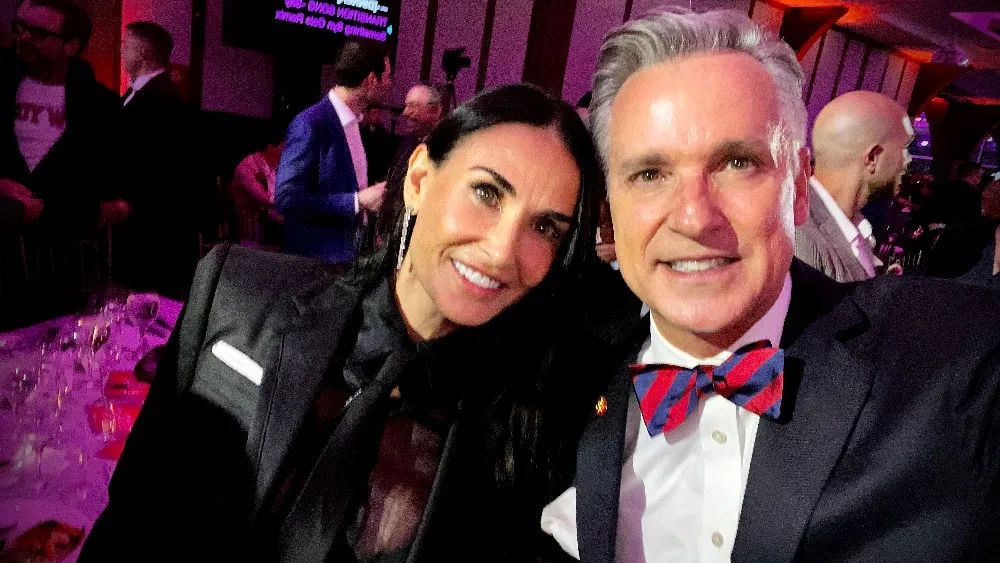May 22, 2024
2024 Cannes Dispatch 4: International Cinema Completes the Cannes Journey
Matthew Creith READ TIME: 5 MIN.
As I entered my last day of the 77th Cannes Film Festival, I was overcome with the feeling that I hadn't seen any movies that completely blew me away yet. Yes, some were intriguing, some were great performance pieces, and some were fascinating additions to iconic filmmakers' work. But, there wasn't anything that made me think outside the box and try to define what this year's Cannes experience would be like.
That changed on my final day at the festival when I got the chance to screen two films in very different sections: "On Becoming a Guinea Fowl" and "Trei Kilometri Până La Capătul Lumii" ("Three Kilometers to the End of the World"). The former competed in the Un Certain Regard category at Cannes, while the latter is currently vying for the coveted Palme d'Or and Queer Palm. Though both were high-profile movies from different countries and genres, they complimented one another in a day filled with cultural change.
A24's "On Becoming a Guinea Fowl" stars Susan Chardy as Shula, a woman living in Zambia who comes across her dead uncle Fred lying in the middle of a road late at night. Immediately the film takes a dark comedy turn as the audience is brought into Shula's world, her many family dynamics, and the cousins, aunts, uncles, and elders who rule the town. But underneath the surface lies something much more sinister, as we learn that Shula's uncle molested her when she was a child and might have been responsible for heinous acts towards other members of her family.
Unsure how to cope with the loss of a family member that others respected, Shula hits a crossroads in the way her family wants to prepare for his funeral. Expected to cry and show remorse in an uncomfortable situation, Shula is met with defiance from her mother and looked down on by those she loves most. It's no secret her uncle was an odd man; in fact, it seems that many of Shula's family members are awkward alcoholics who don't see beyond their own affairs.
However, Shula isn't just navigating misunderstandings in the face of her family's expectations. She's trying to steer a ship of cultural norms and familial infighting that results in her truth not mattering to those around her. Zambian traditions with funerals dictate that indiscretions like her uncle's are frowned upon but easily forgiven, most notably demonstrated during an exchange where the widow must pay the uncle's family for "being a bad wife" and driving her husband to perform such awful acts on children.
"On Becoming a Guinea Fowl" is a harsh look into one family's struggles but a 30,000-foot view of a cultural diversity unseen in American lives. Chardy is ultra-reserved as the badass Shula, never letting the audience forget where she stands on any subject matter as she proceeds through ridiculous animosity and shame. Director Rungano Nyoni ("I Am Not a Witch") utilizes Shula's dreams to illustrate her feelings towards certain family members in a realistic and often chaotic manner.
Women are still seen in this modern Zambian society as traditionally subservient, and even if Shula commands any room she's in, she still feels as though she must respect the men in her life. The titular guinea fowl is in reference to a children's television show that Shula can't get out of her mind, harkening back to a time when she felt the most secure in her body. The film is heartbreaking, at times deeply funny, and altogether horrendous in varying moments.
Finally, it was time to screen the new film, "Three Kilometers to the End of the World," co-written and directed by Emanuel Pârvu. Similar to "On Becoming a Guinea Fowl," this Romanian movie takes a horrifying situation and makes a commentary on the lack of cultural shifts occurring in a rural community. Rather than focusing on the difficulties of being a woman in a small town, this film expands into the life of a gay teenager struggling with shaming his family.
"Three Kilometers to the End of the World" stars Ciprian Chiujdea as Adi, a closeted gay 17-year-old spending the summer in the Danube Delta in his family's town that the Romanian Orthodox Church practically runs. A sensitive soul to his core, Adi is brutally attacked in an act of gaybashing that results in bruises and welts all over his face. Unable to hide what happened to him, his parents straddle the line of being more concerned with their son's sexuality being the talk of the town rather than the welfare of their own child.
The local police aren't much help either, as Adi is met with indifference towards his assault. Even the perpetrators openly admit to what they've done, knowing full well that religion and conservative values control the law around these parts. The summer season becomes an uncomfortable backdrop for Adi's pain, and as temperatures rise outside, growing fear of his sexuality rises inside his own home.
"Three Kilometers to the End of the World" is rough to watch but a much-needed reminder that even if we believe we've come far in respect for the gay community, there's still some more to go. In the United States, we have incidents like what happened to Matthew Shepard, a young man struck down in his prime largely because of his sexual orientation. But some people might forget that other countries, other towns, and other communities don't have hate crime legislation to fall back on. Some young gay people are still subjected to hate when all they strive for is love.
This film is a mishmash of tradition and cultural attitudes that meet modern expectations but remain mostly the same. Though we see glimmers of hope through Adi's bruises and want so much for him to flee this awful place in his life, it's clear that he's stuck for now with what God and his family have provided for him. Chiujdea will break your heart in a poignant performance that must be seen to be believed.





